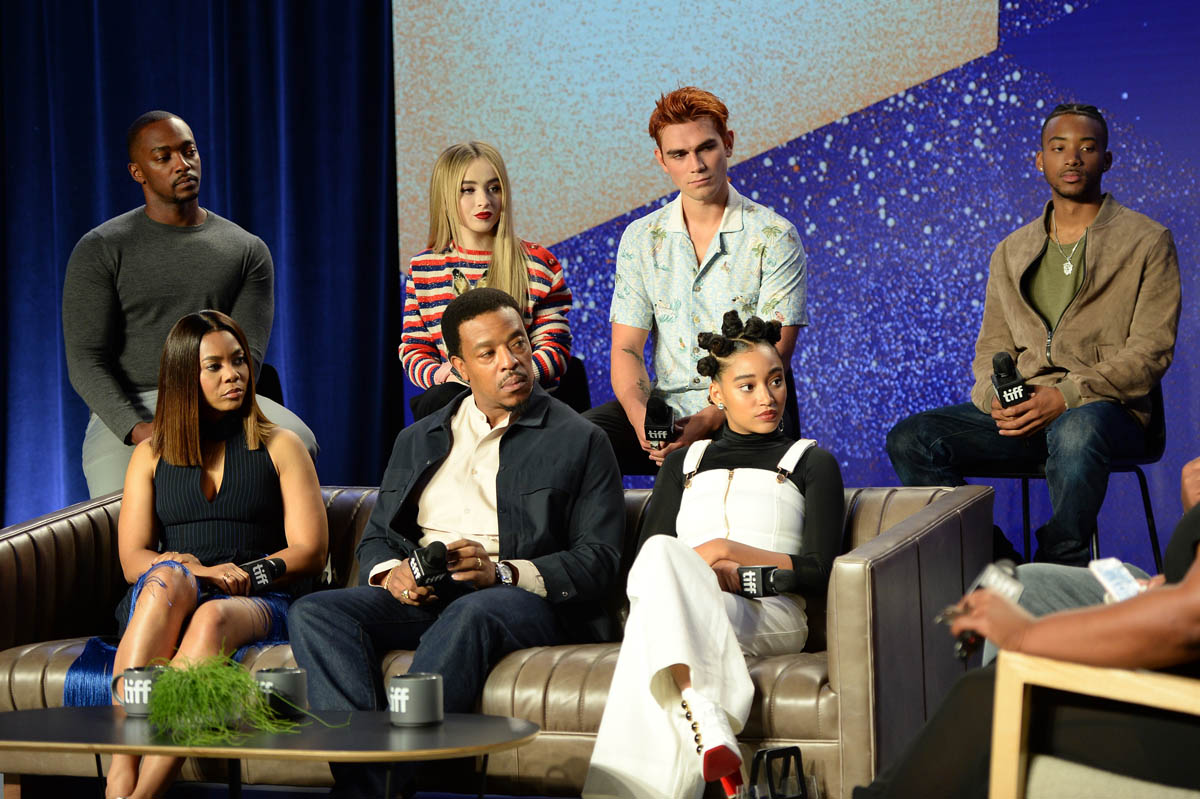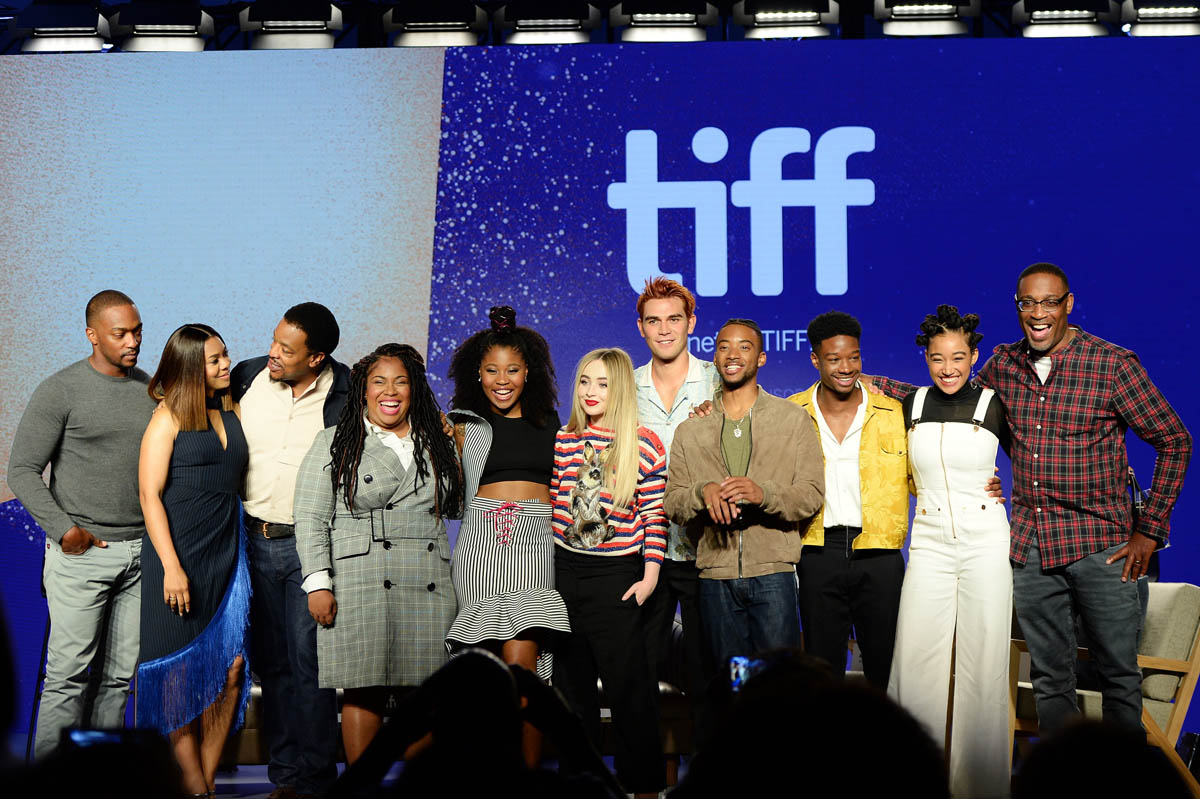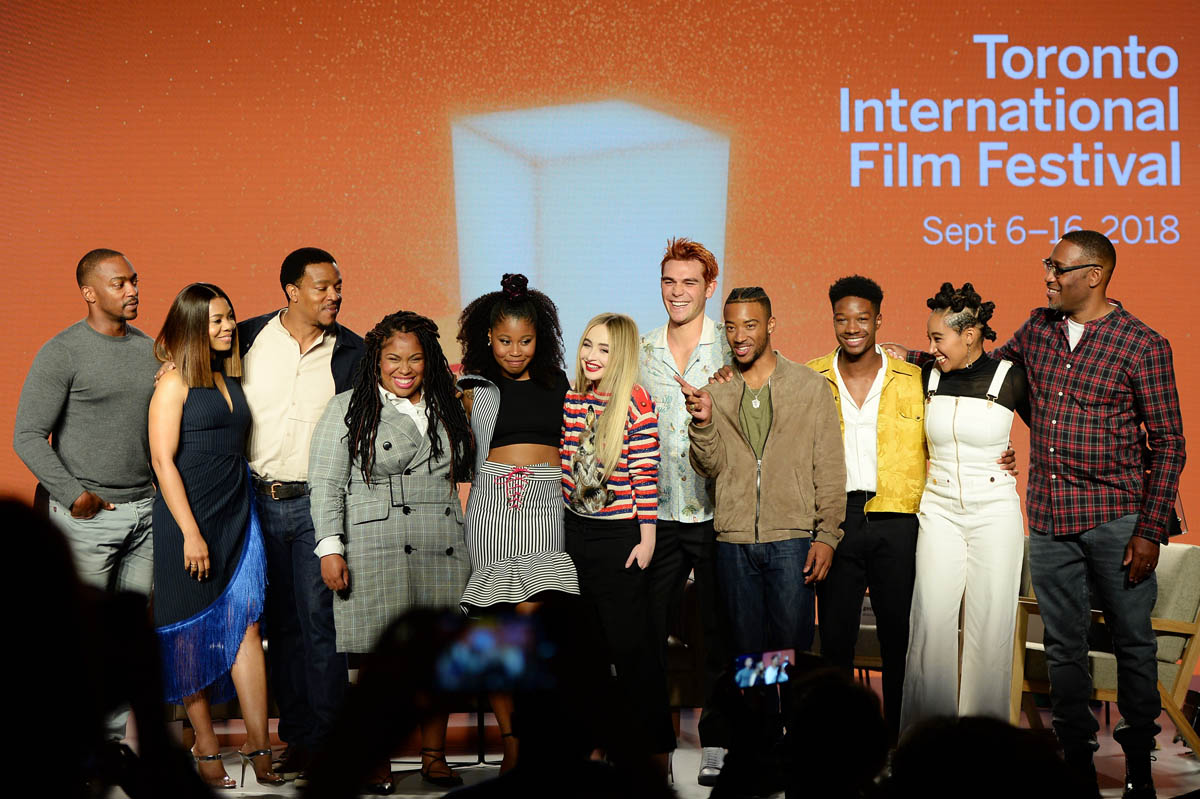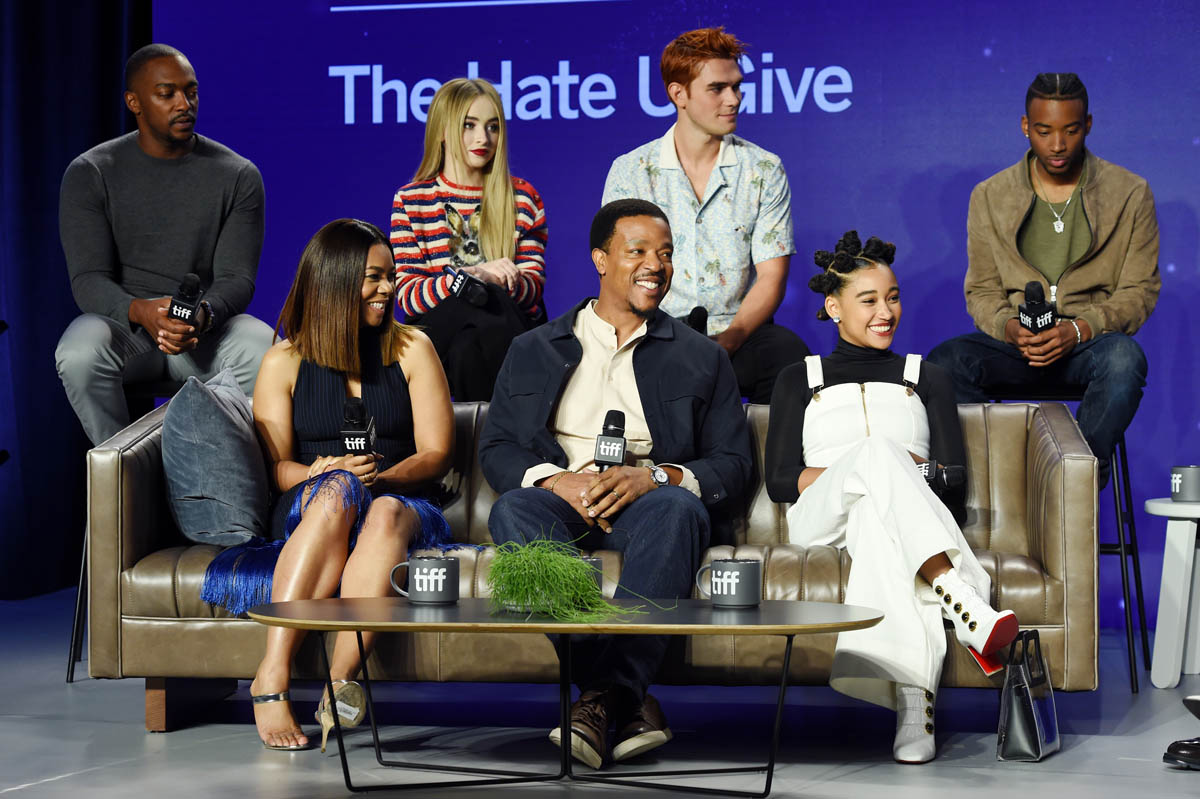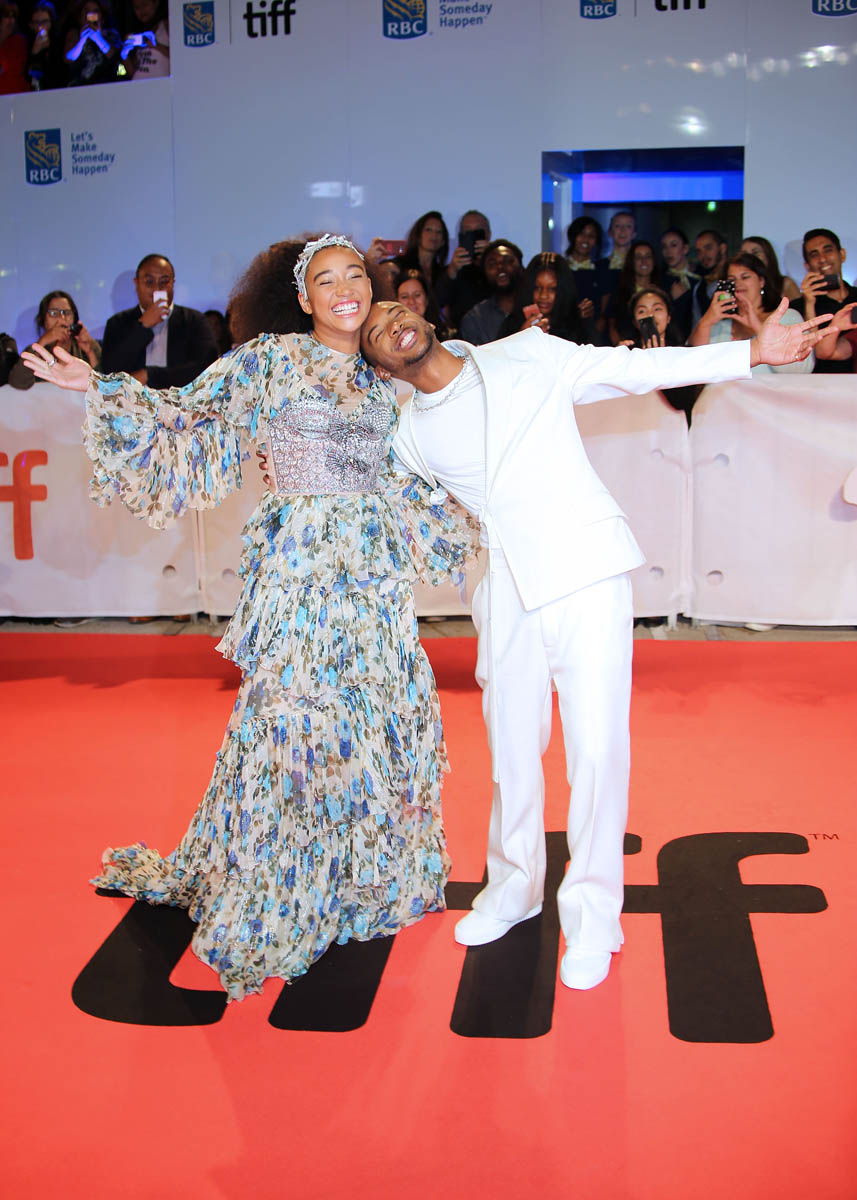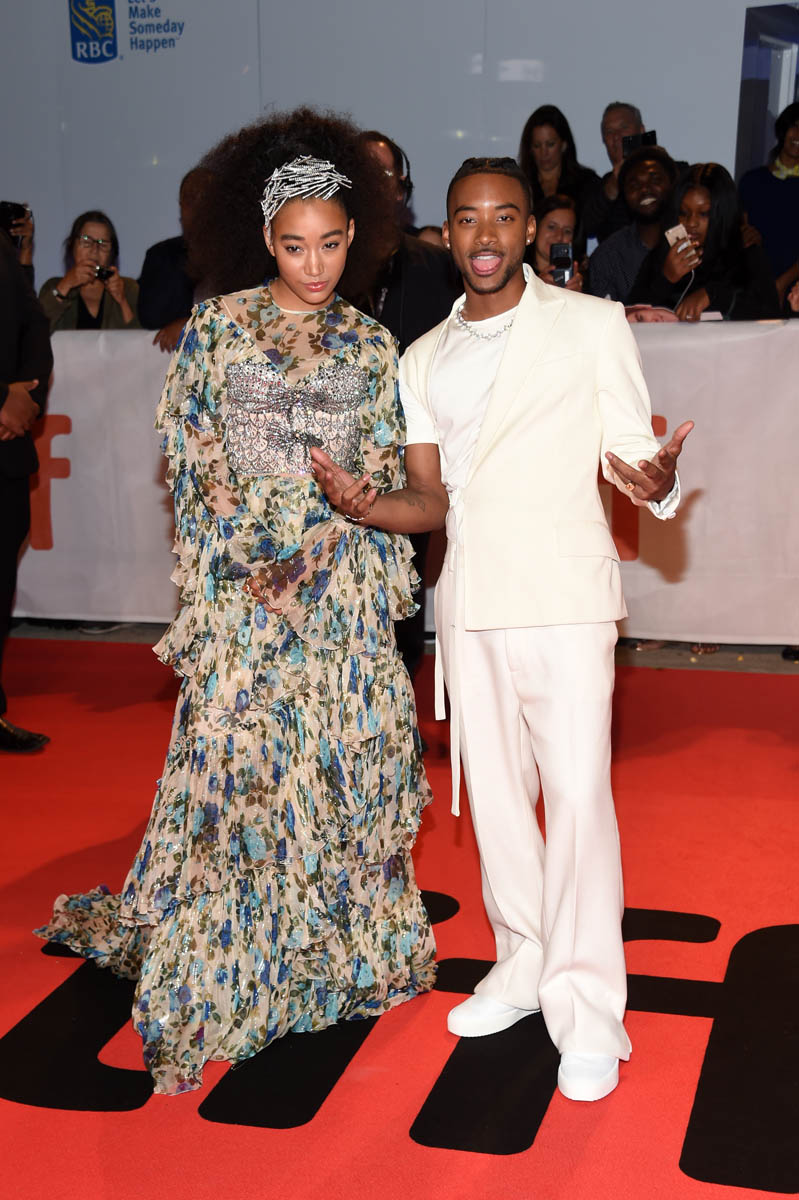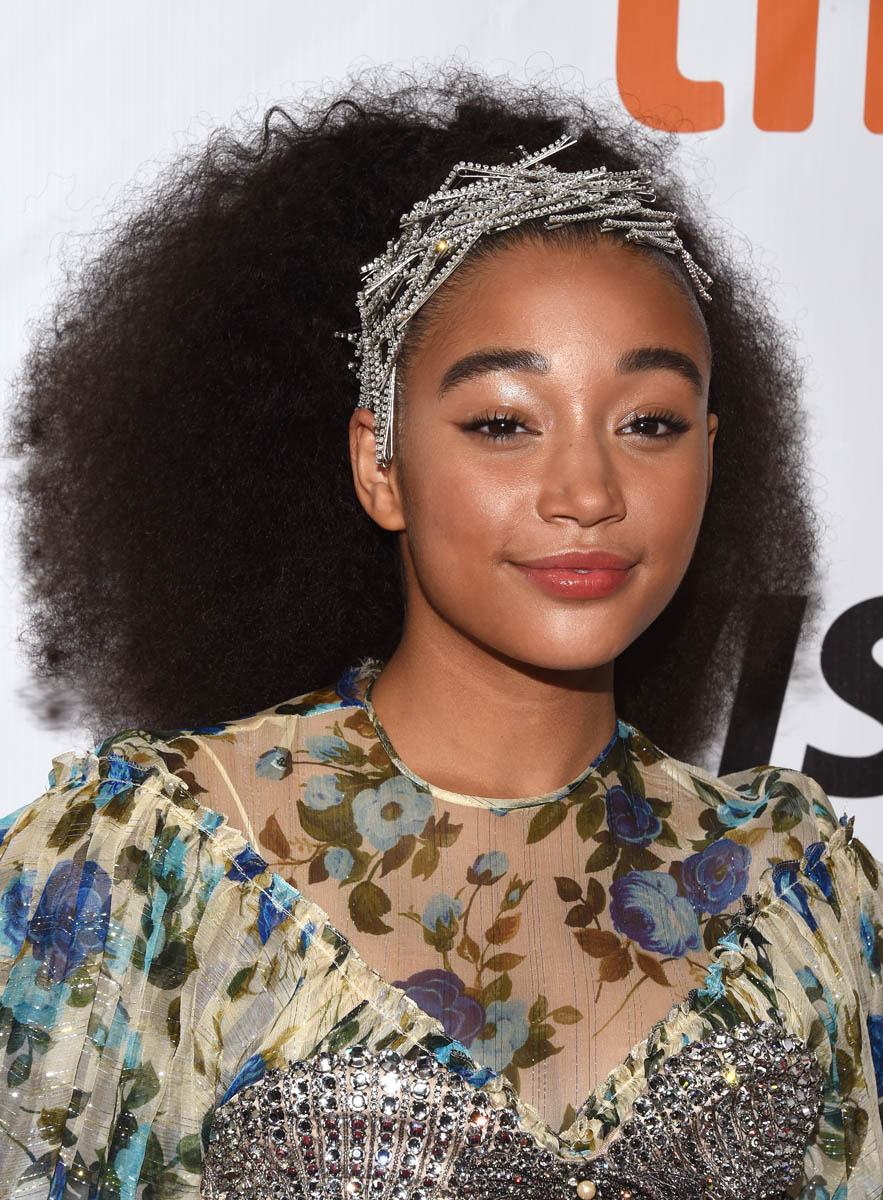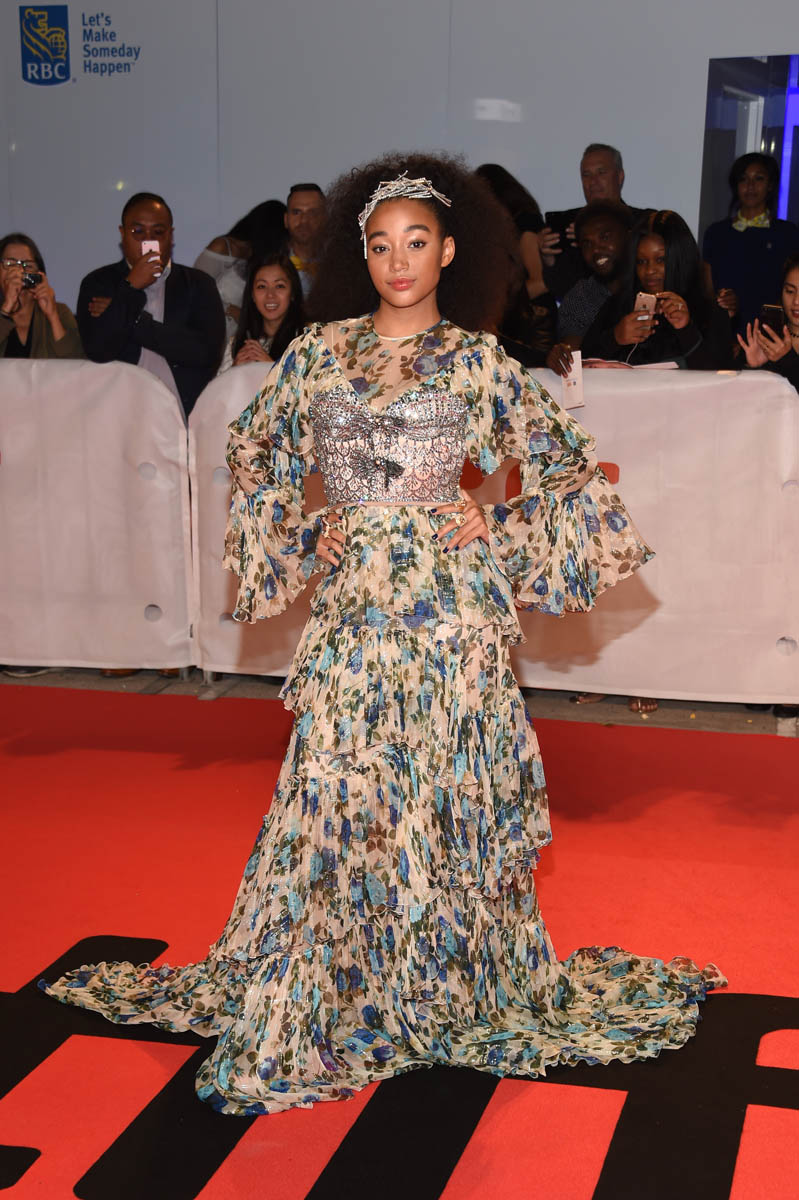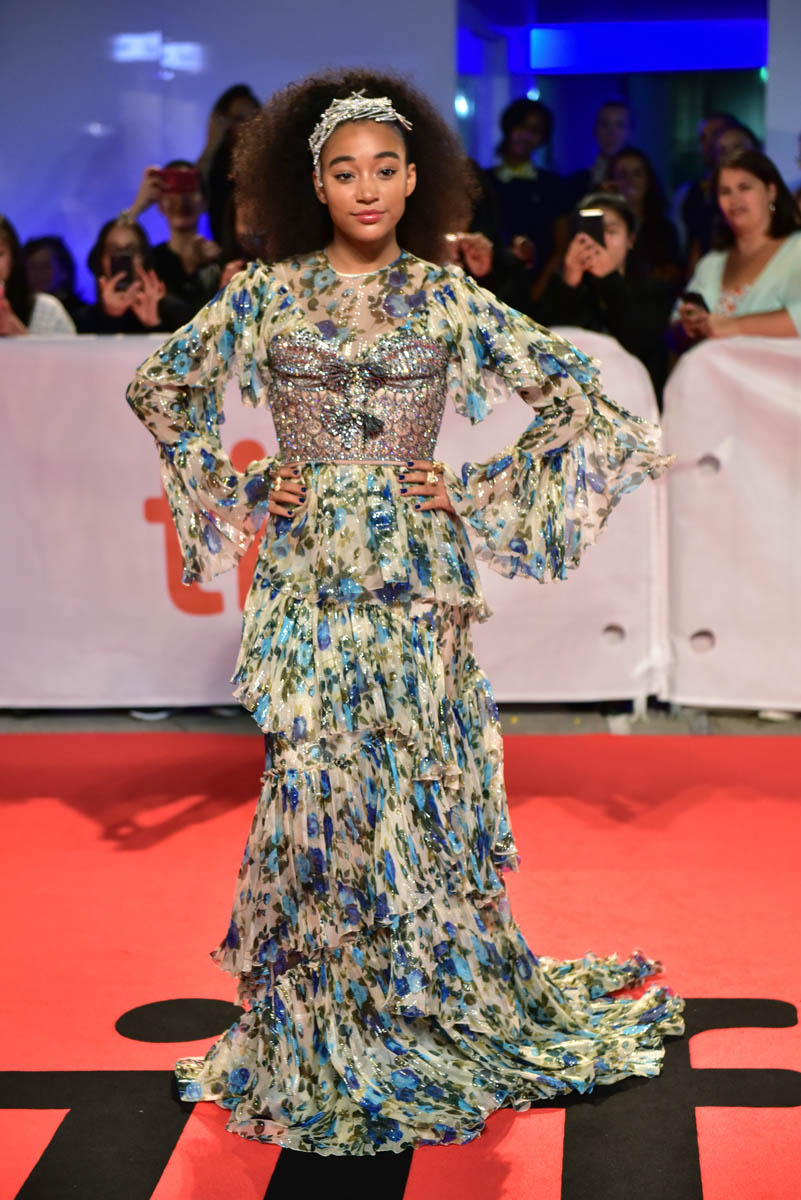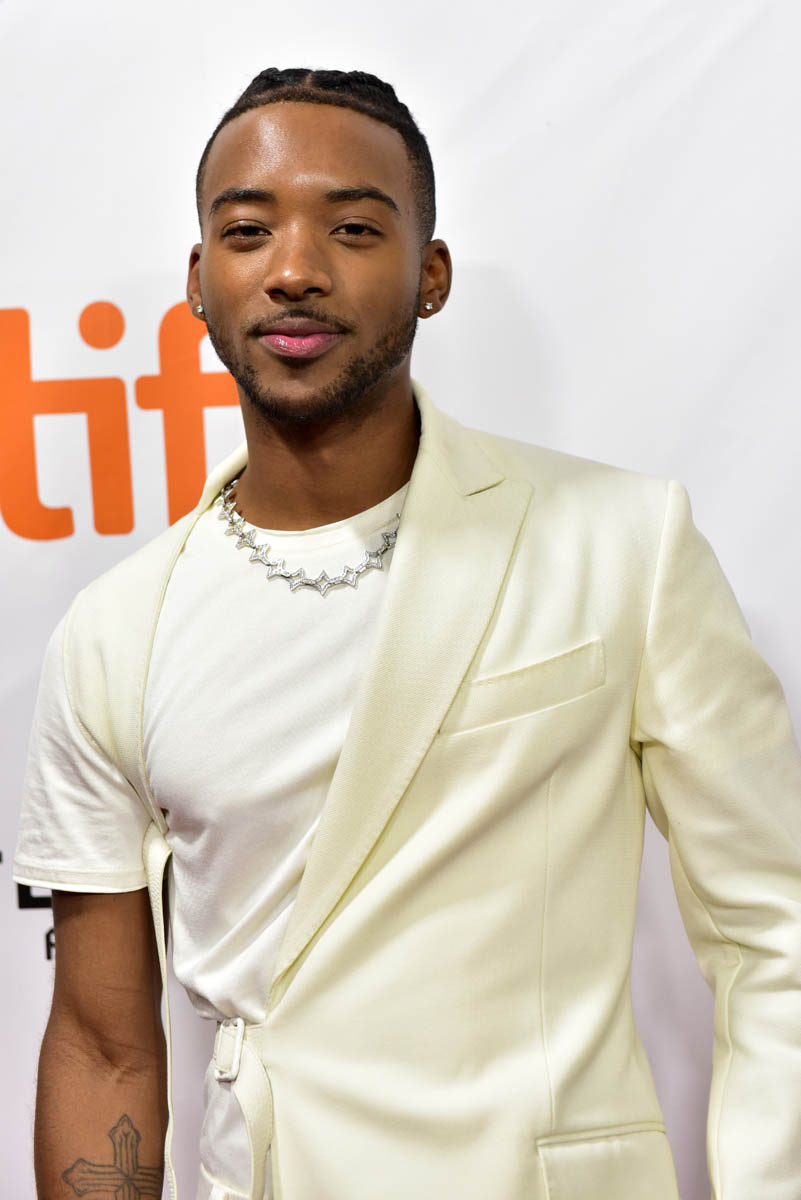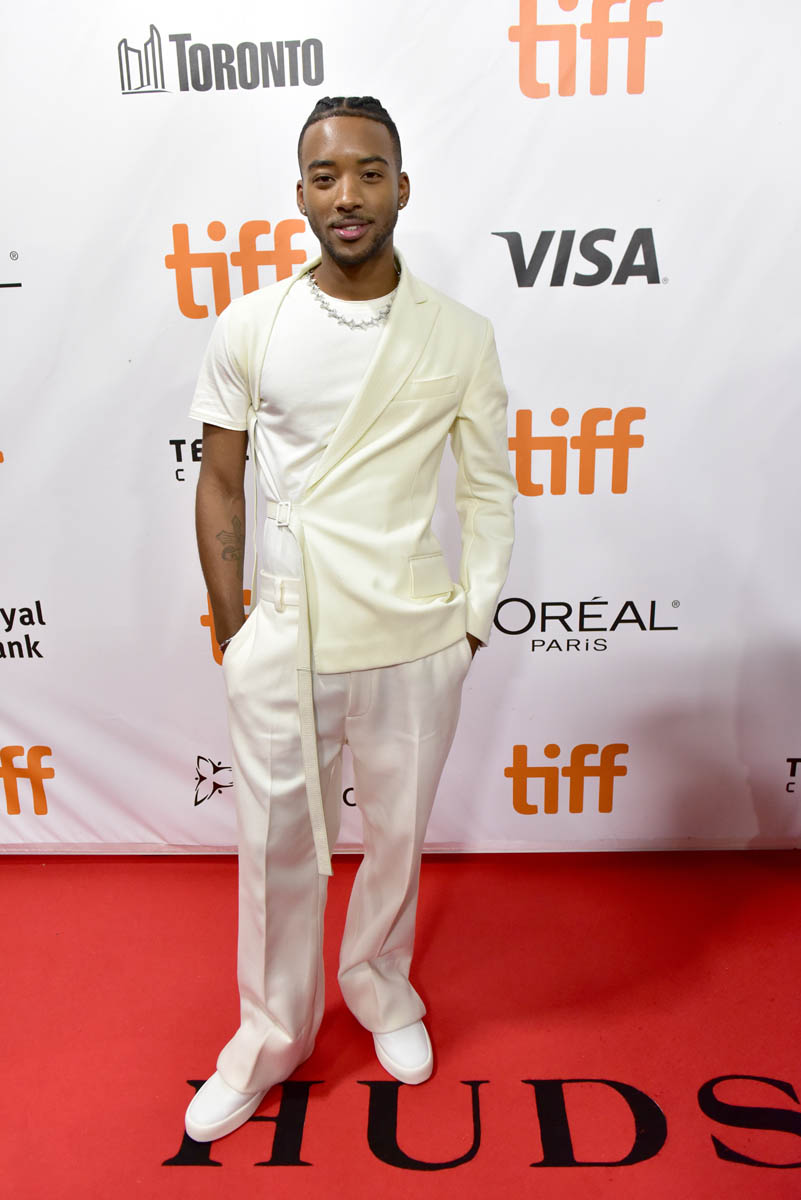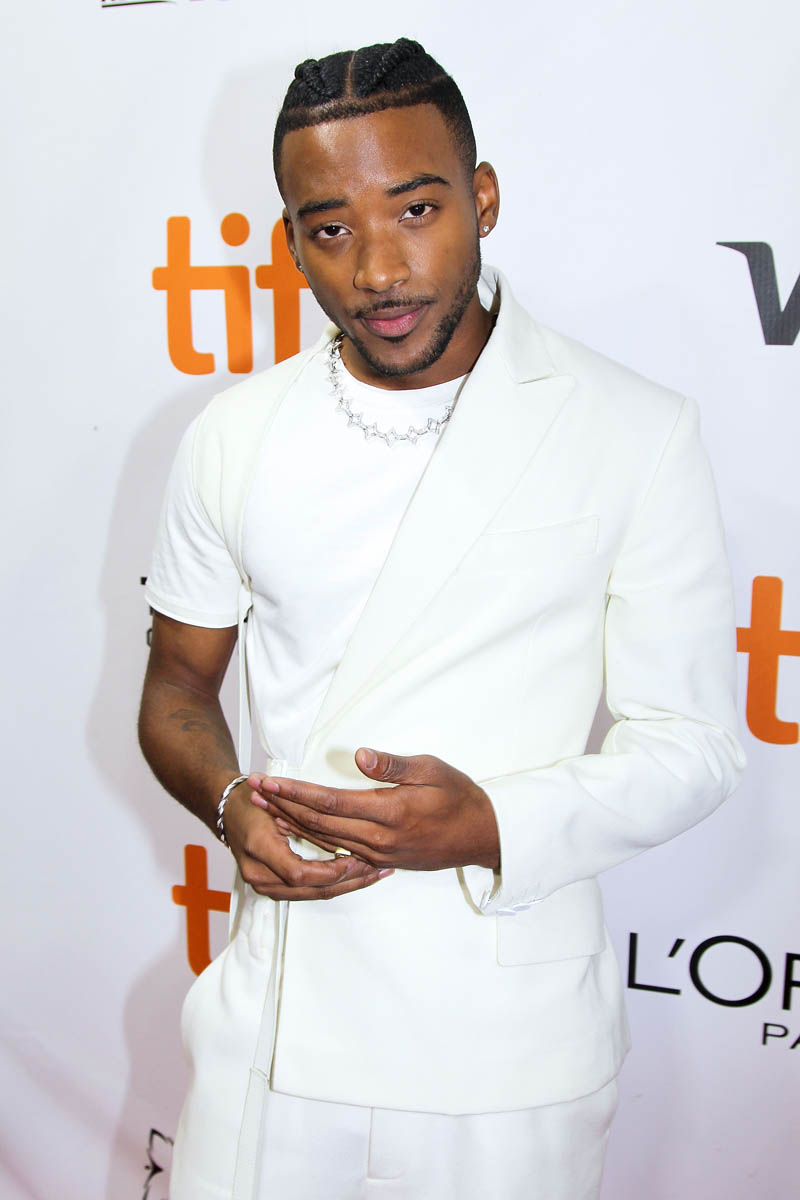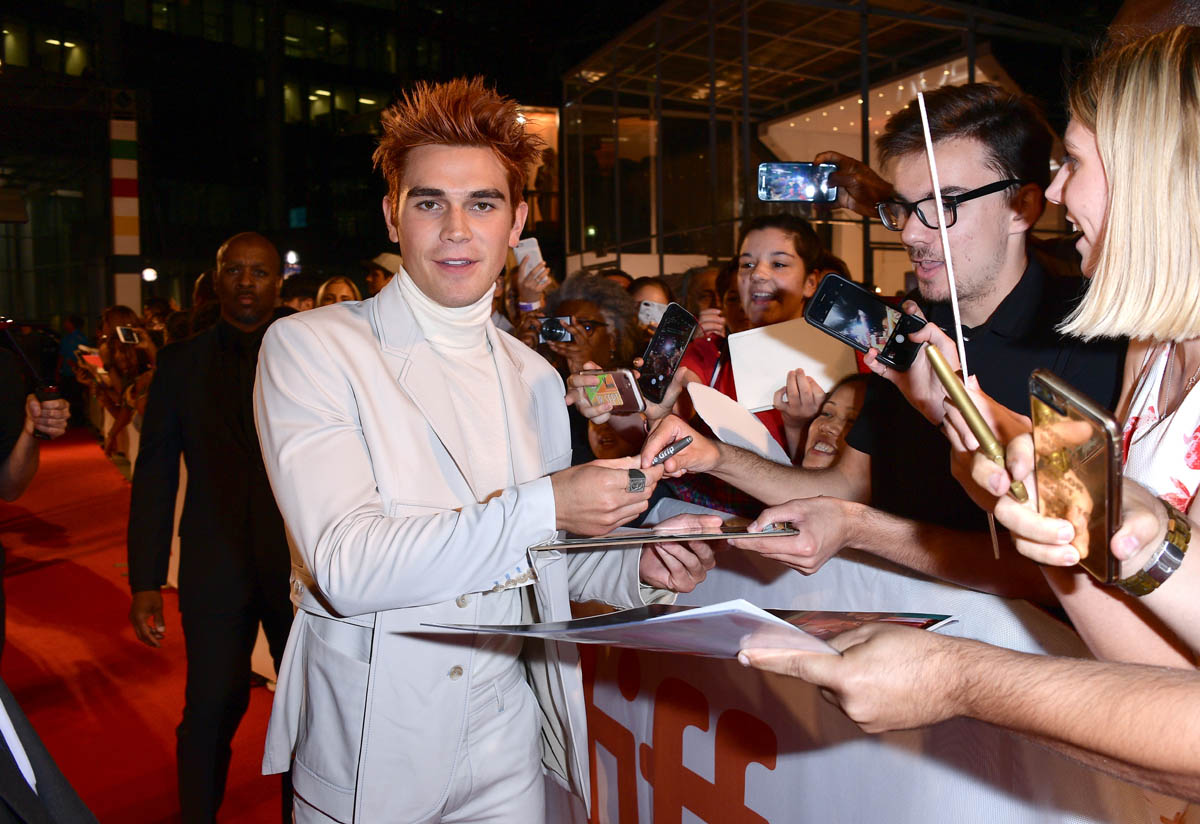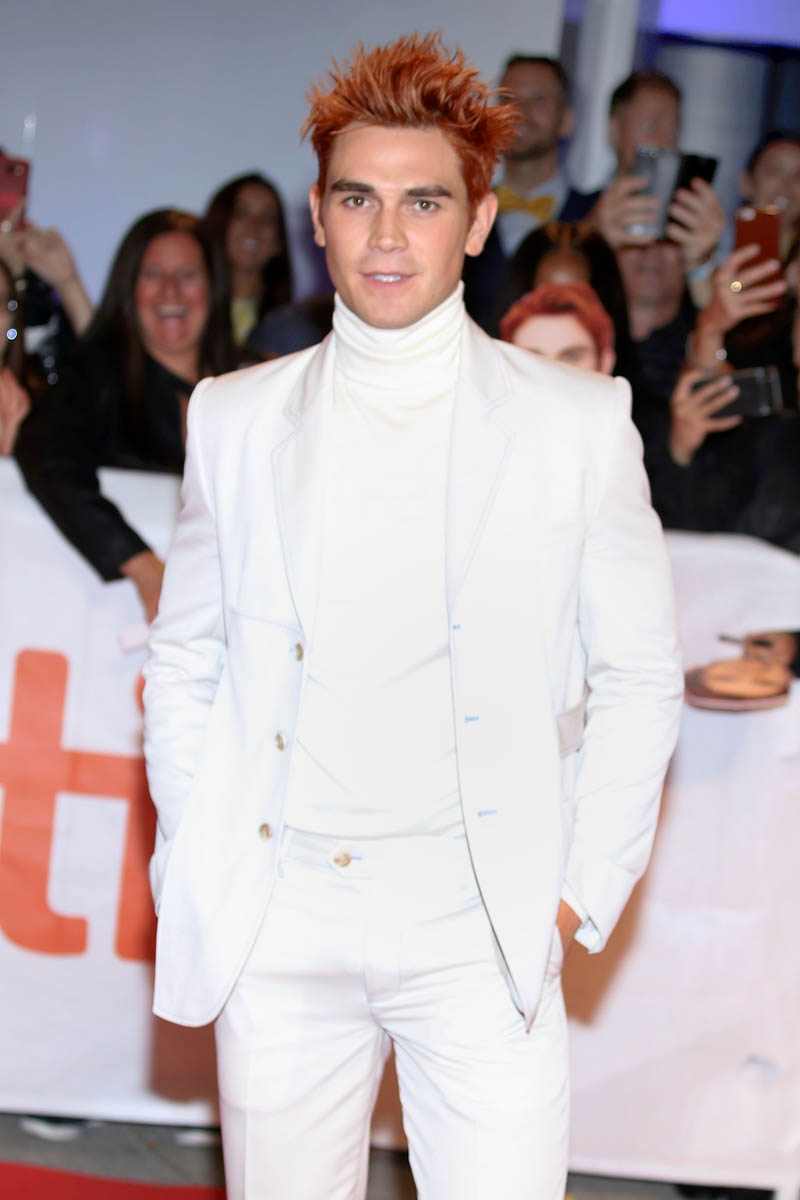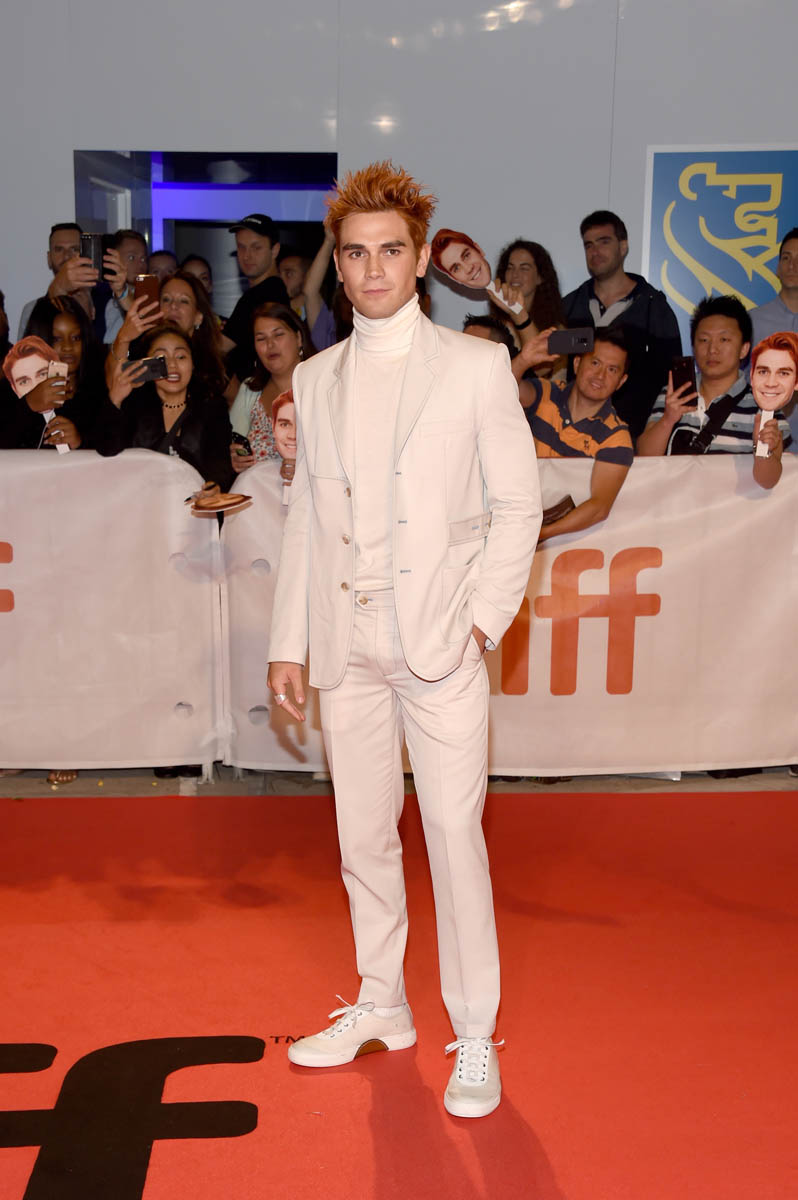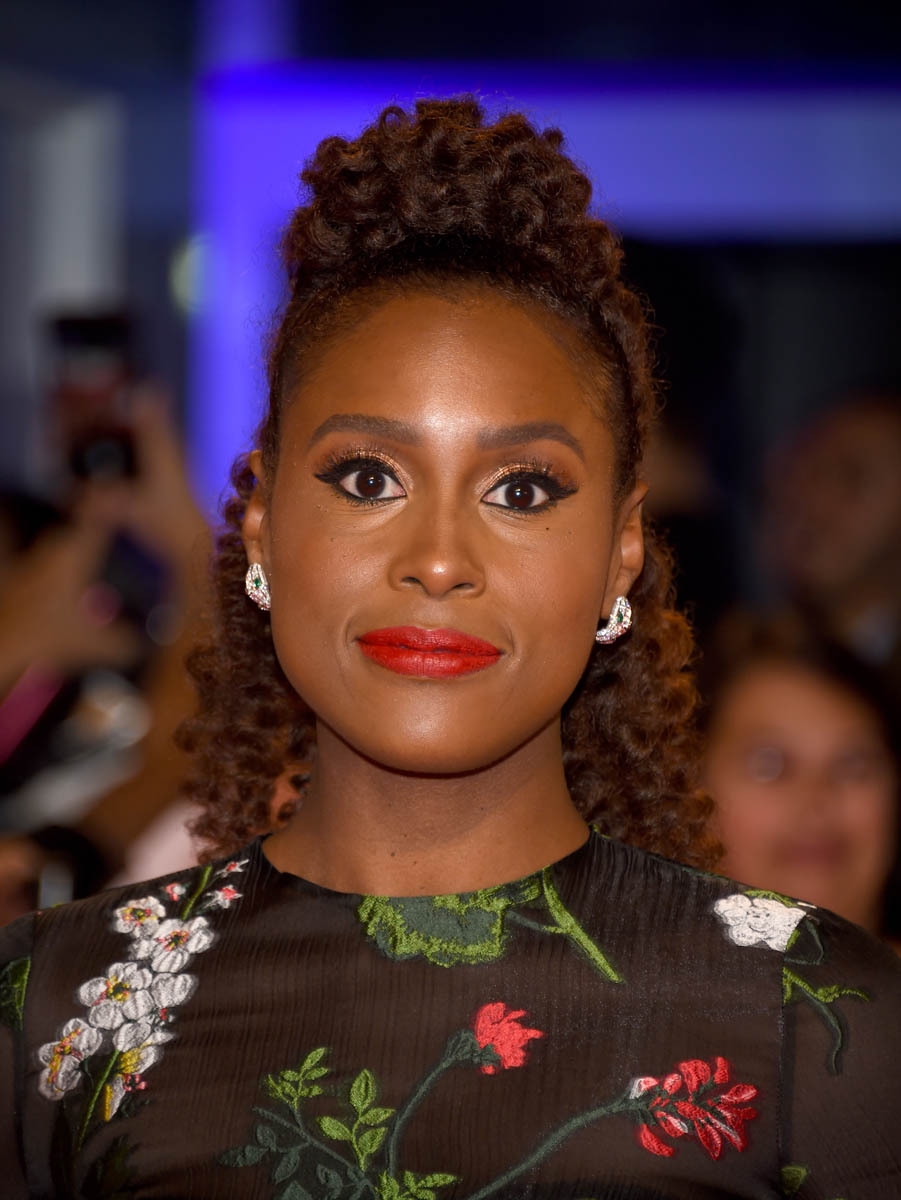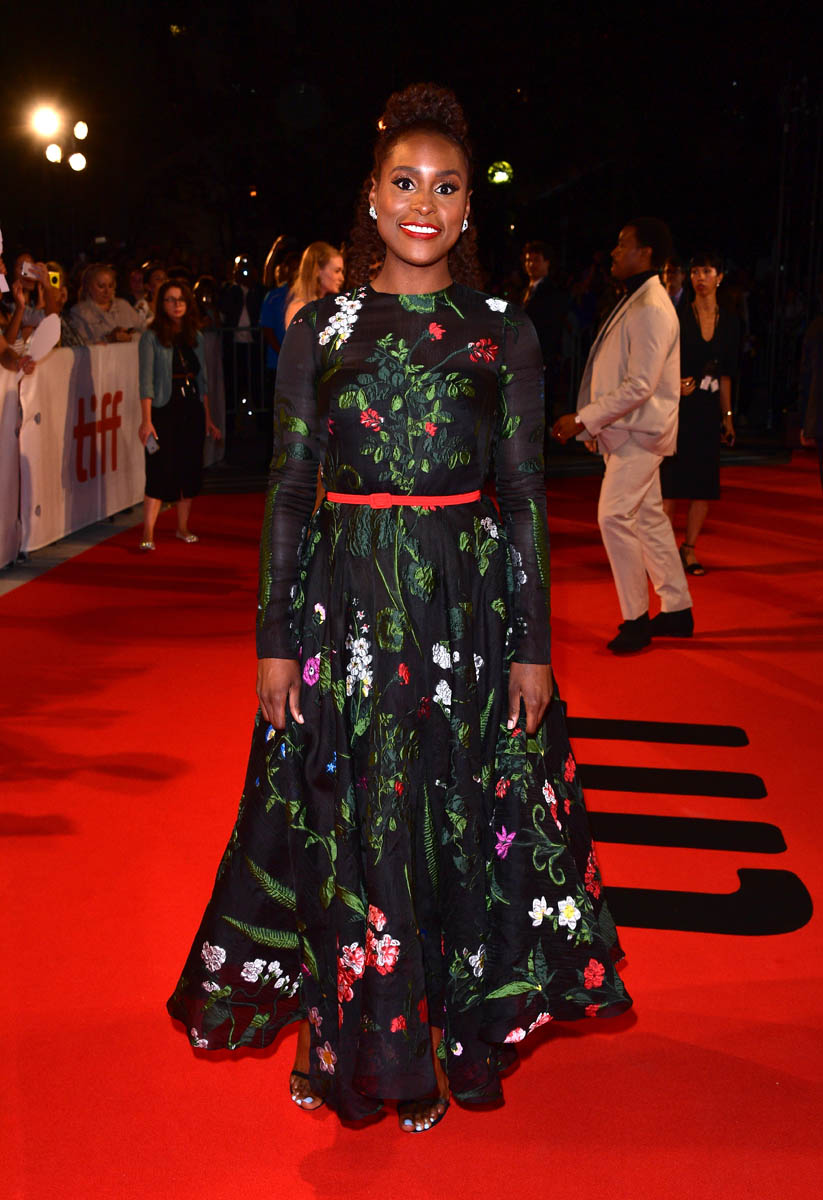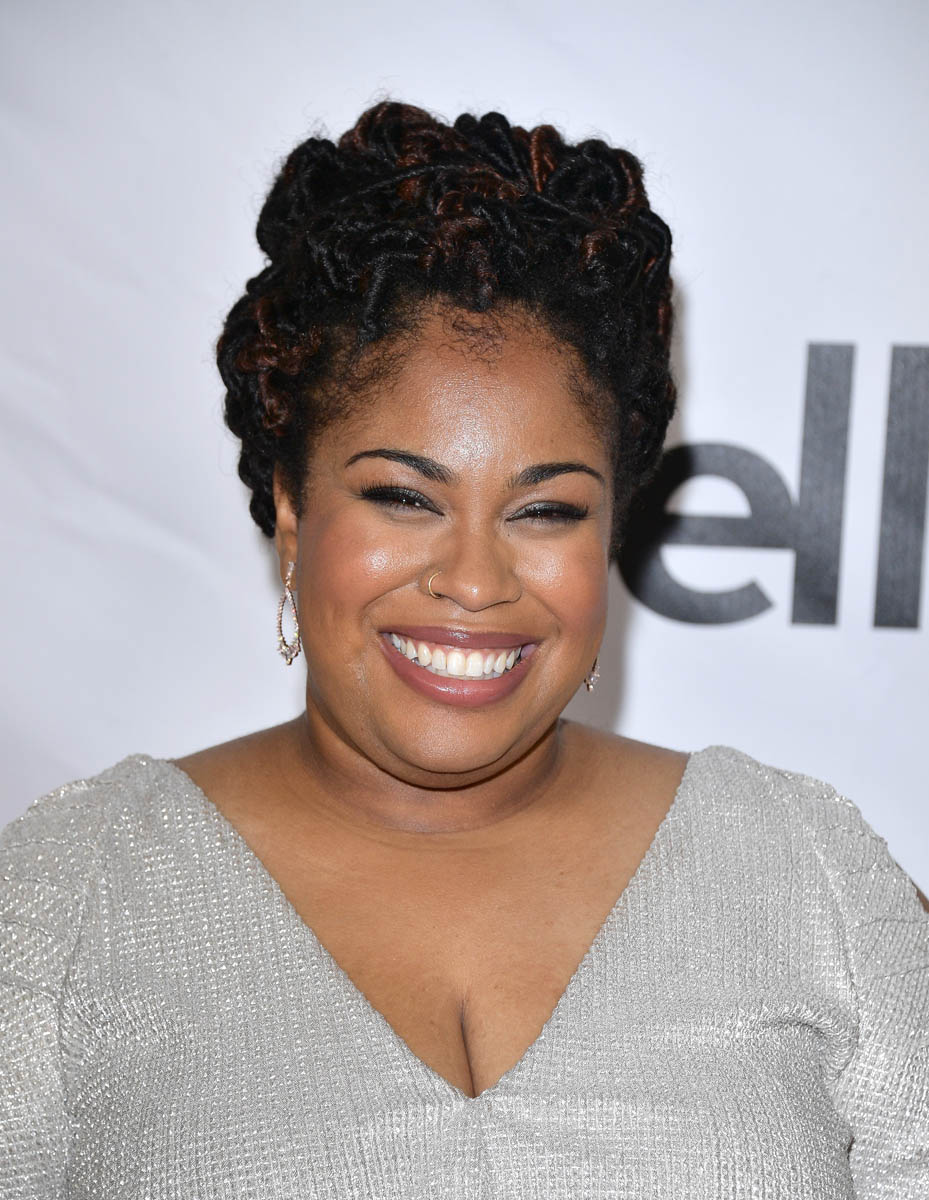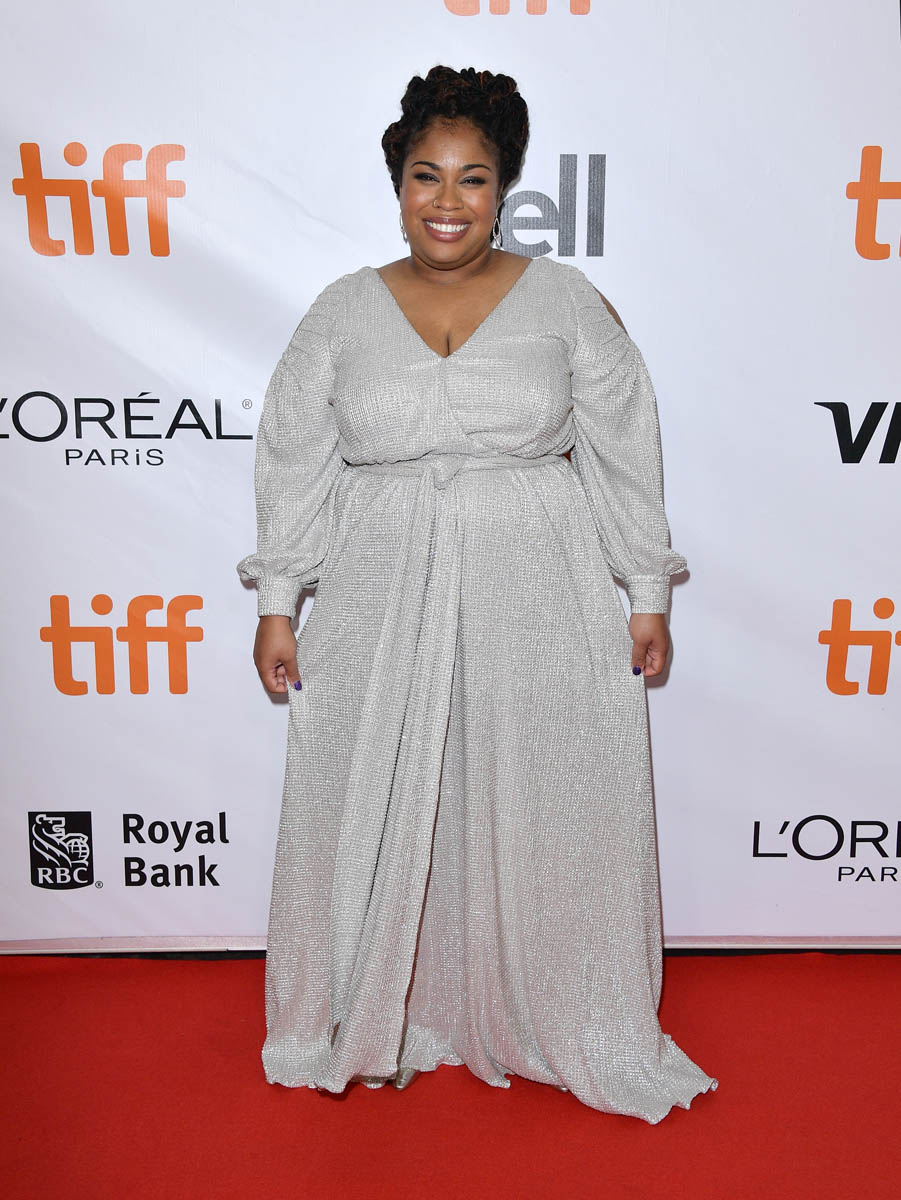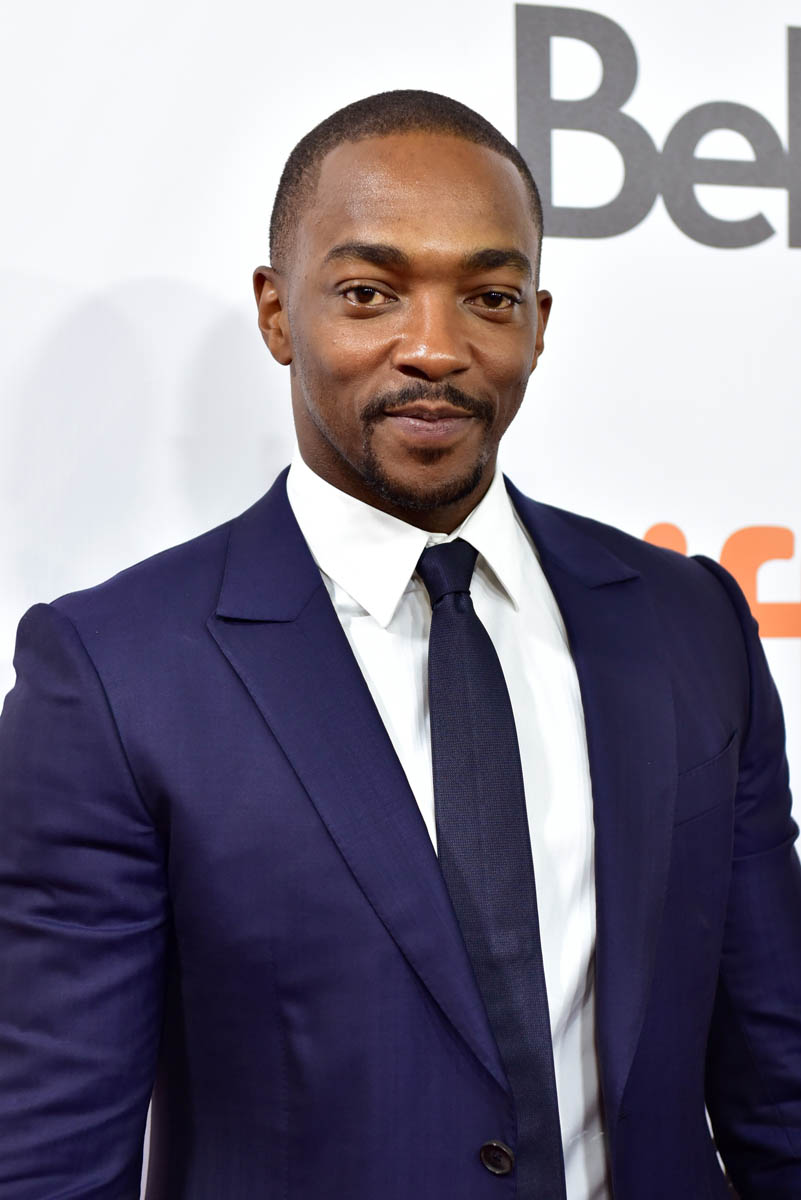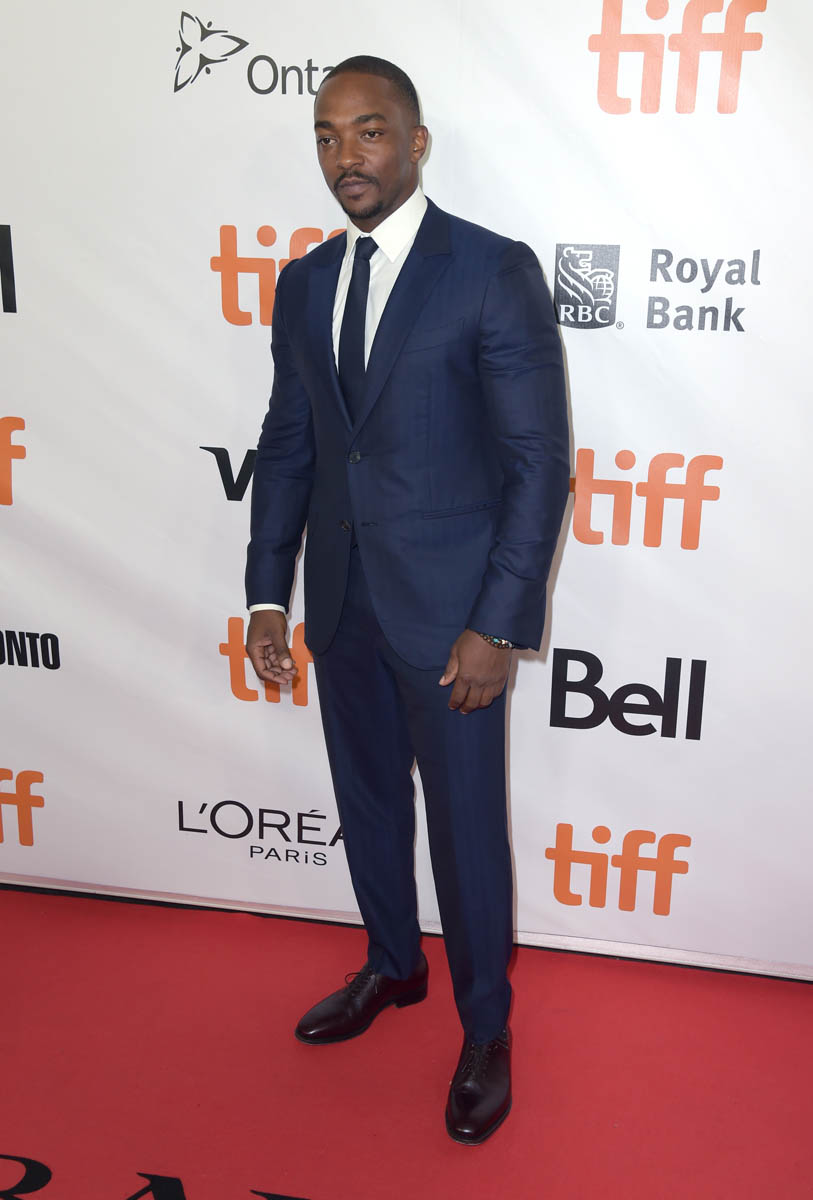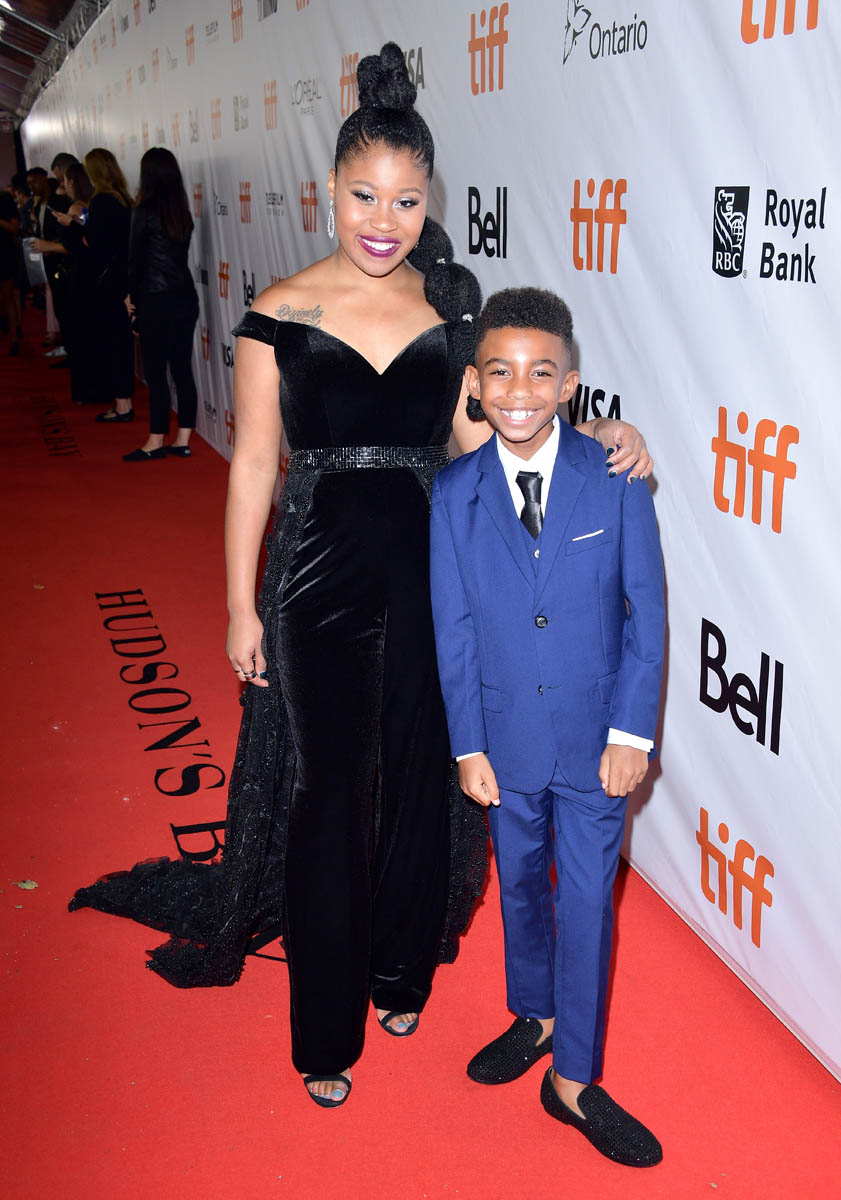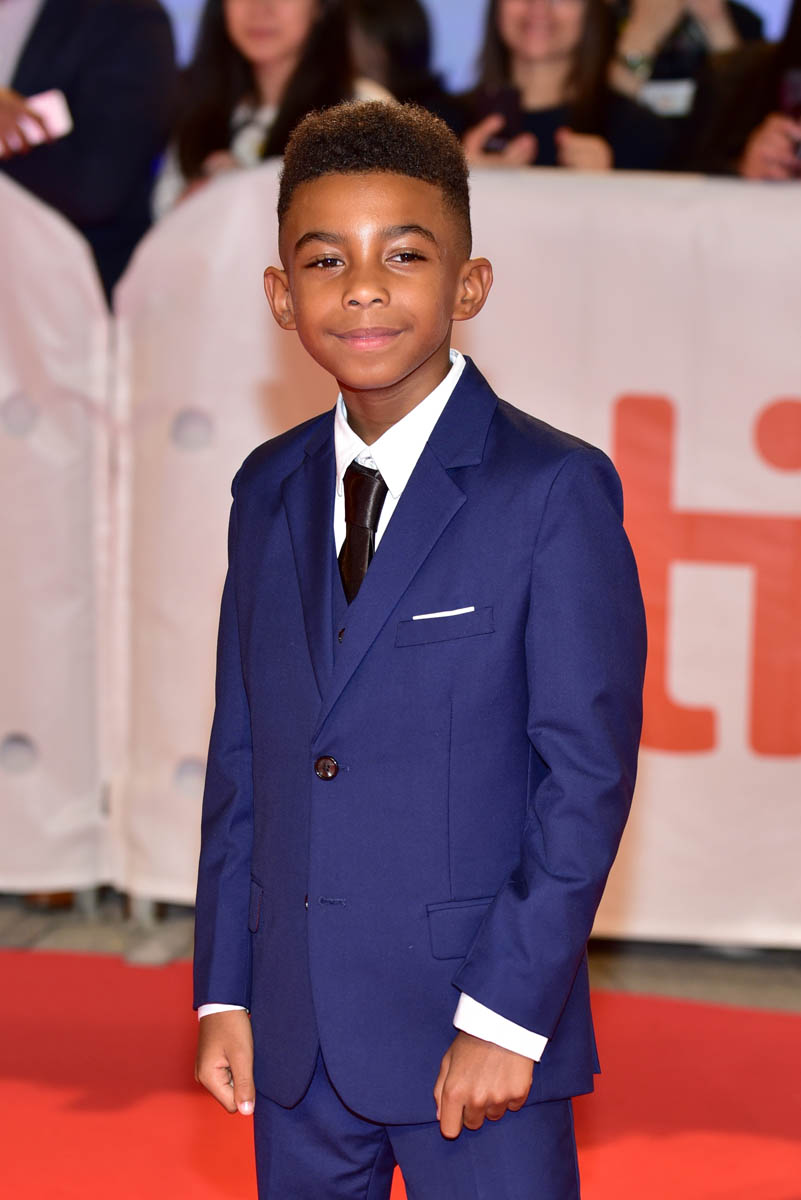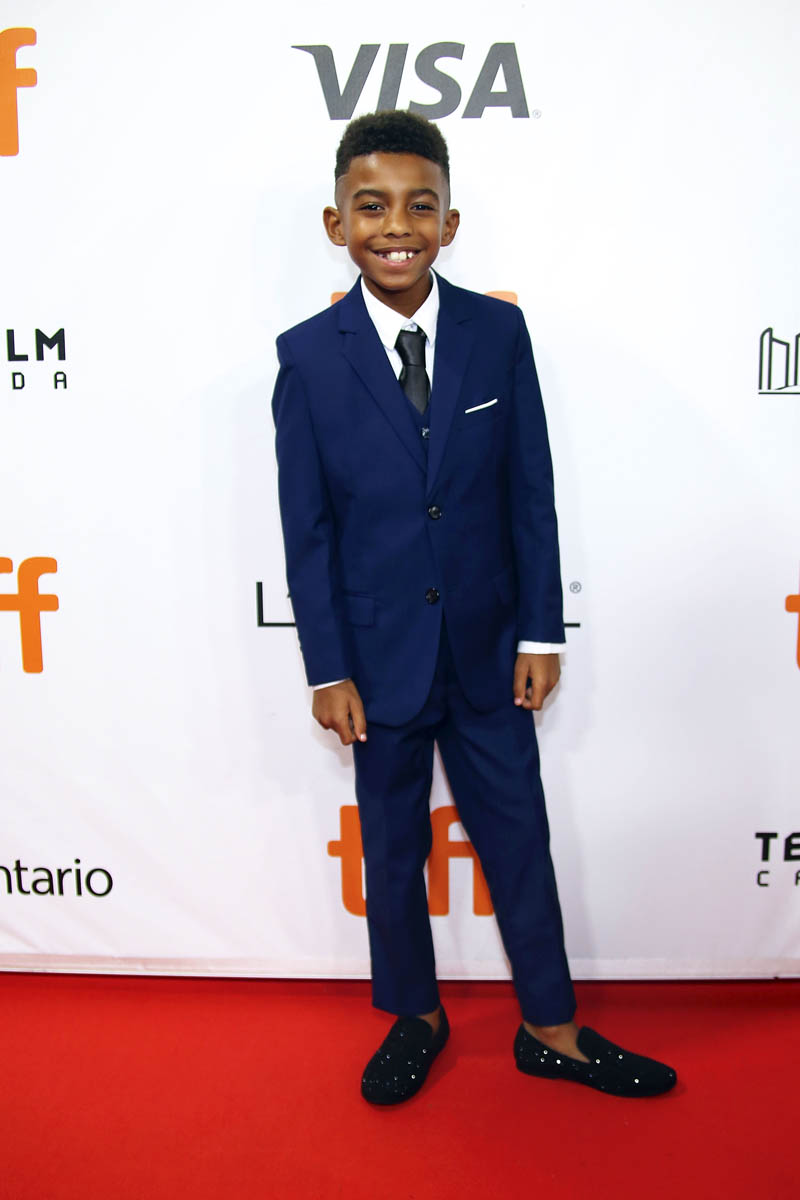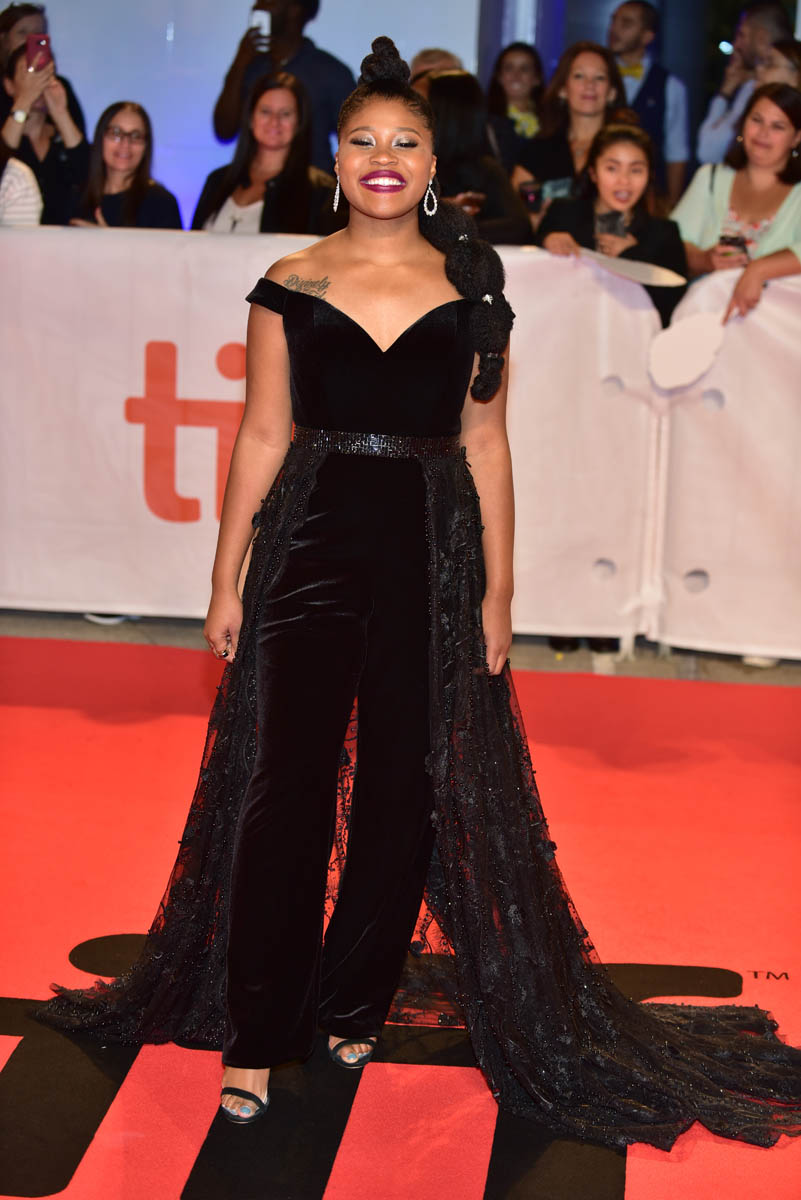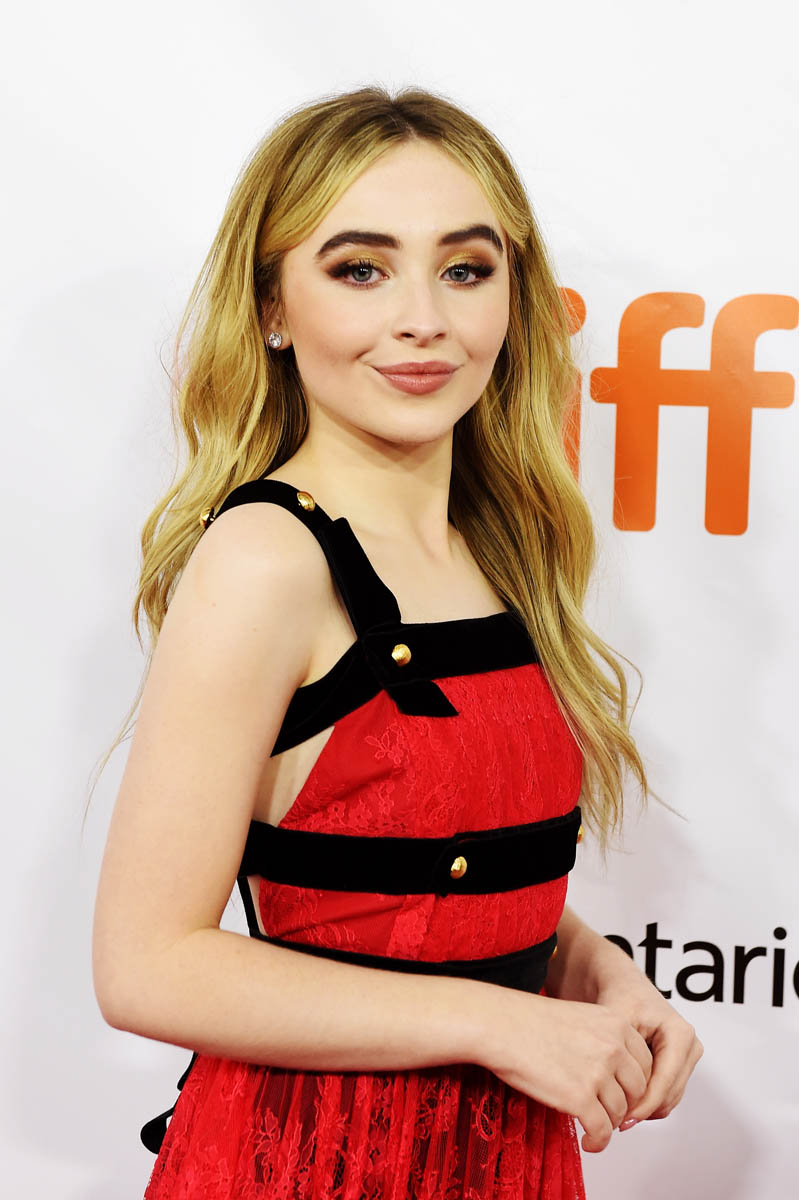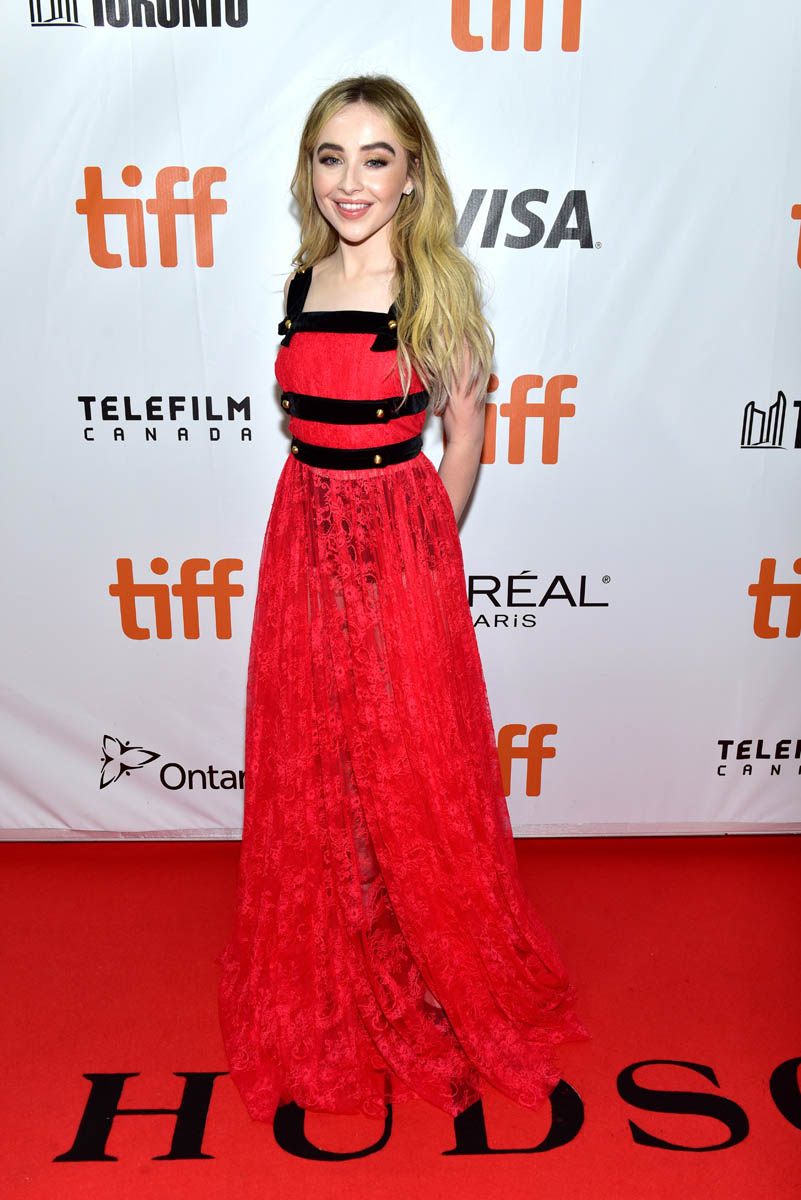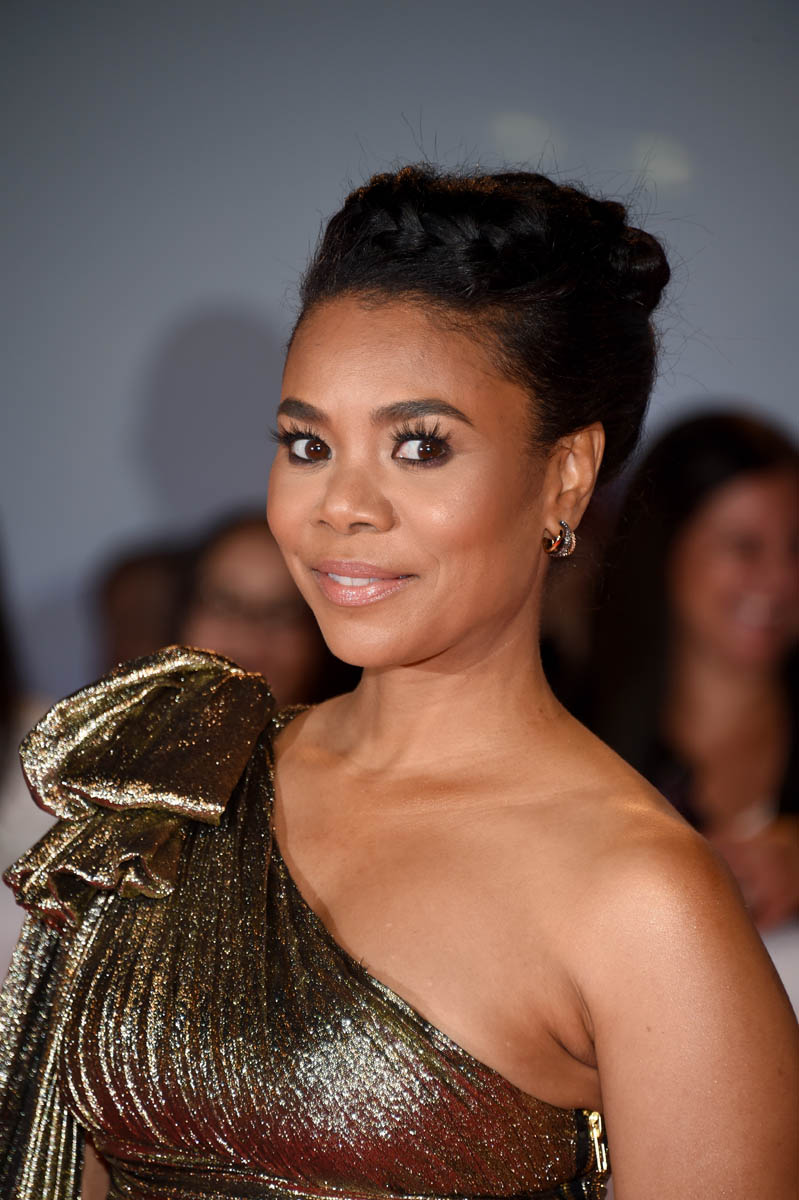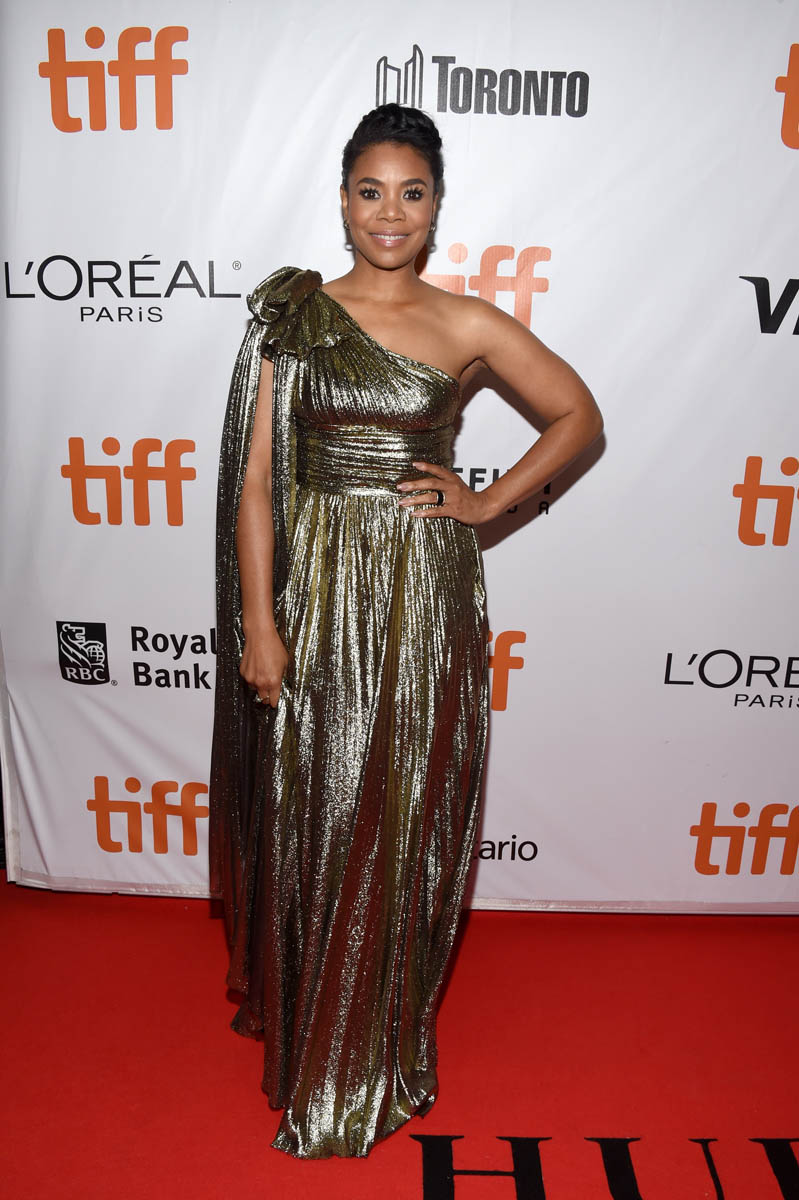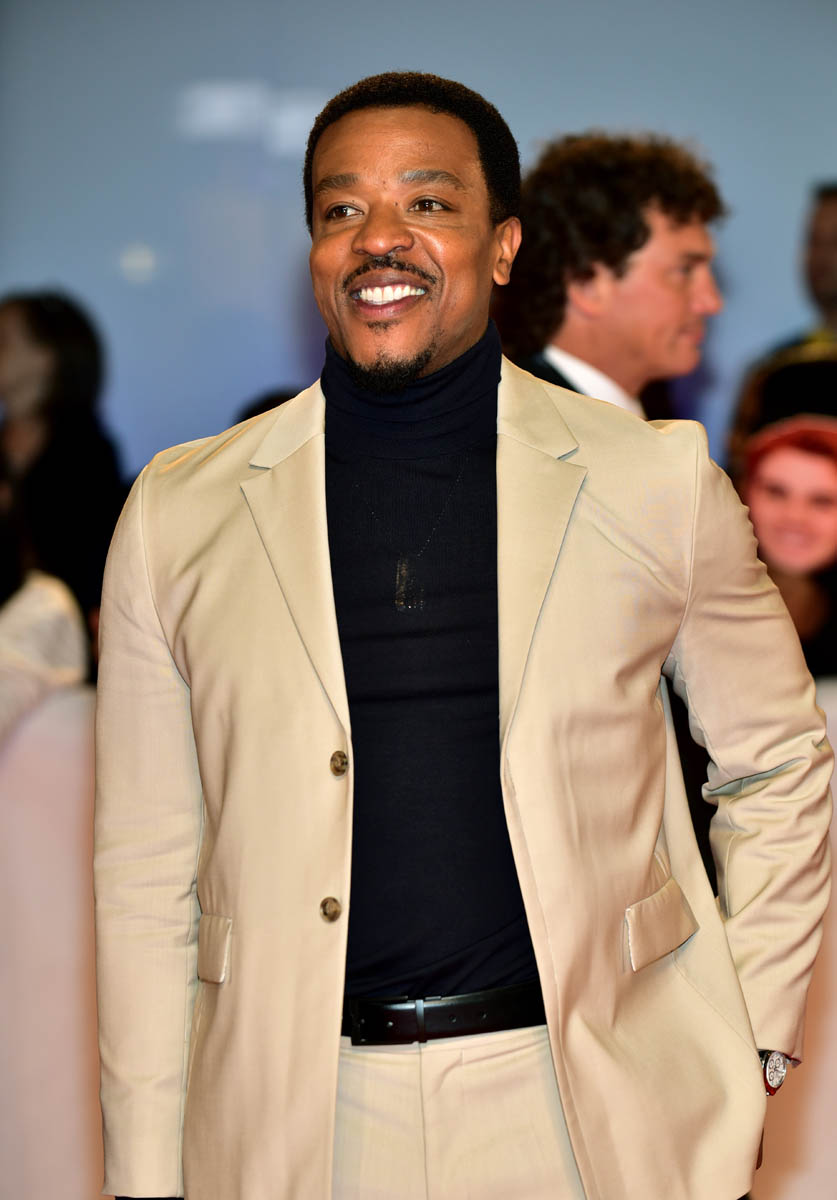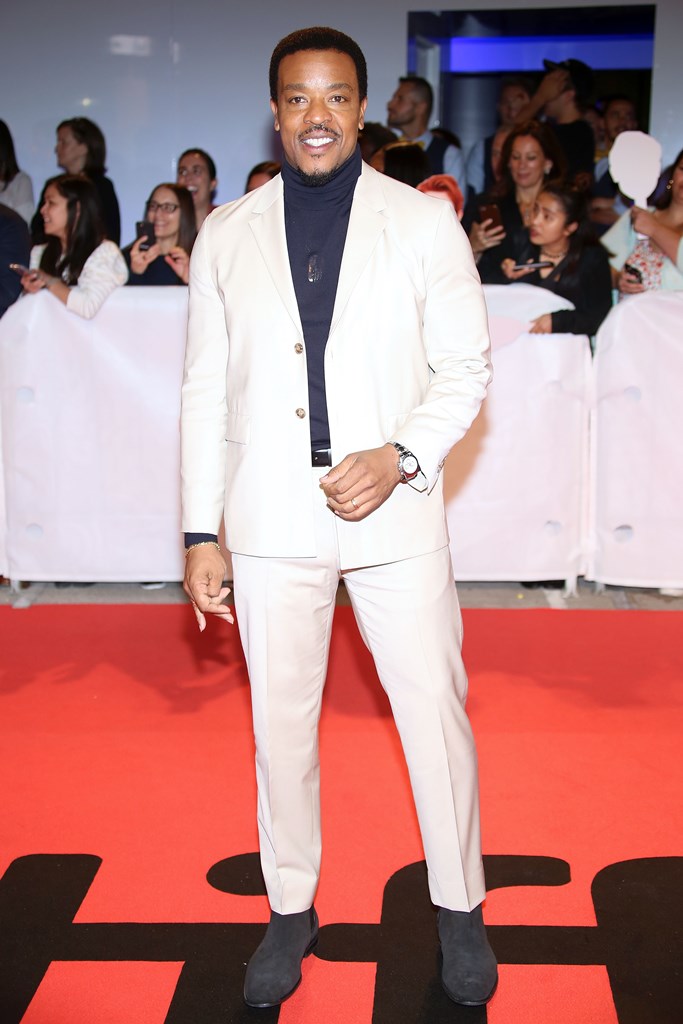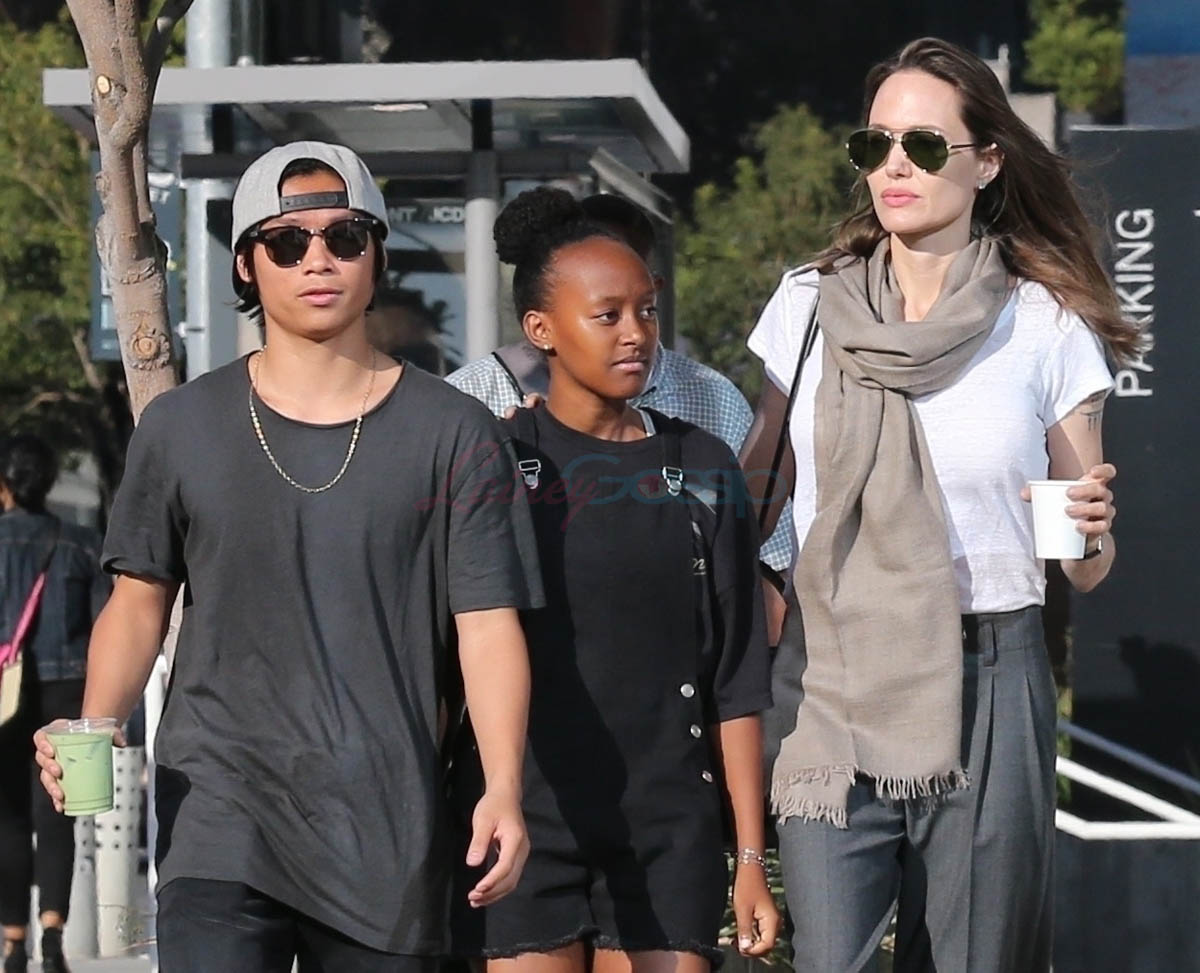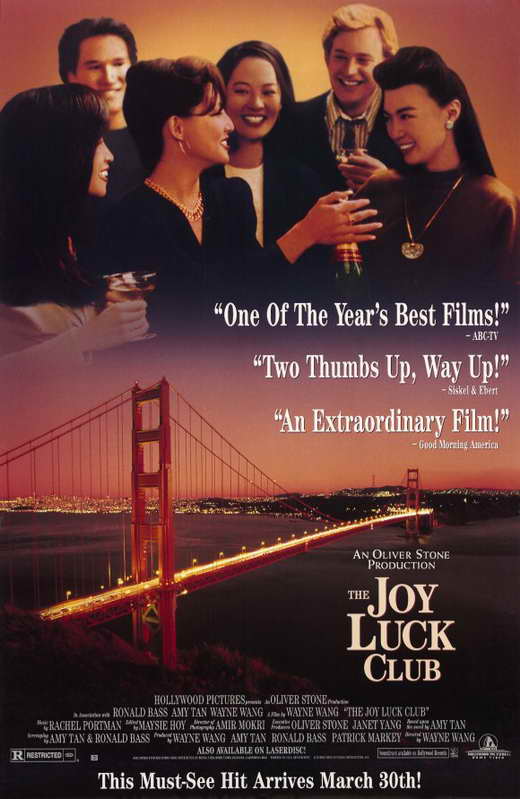TIFF Review: The Hate U Give


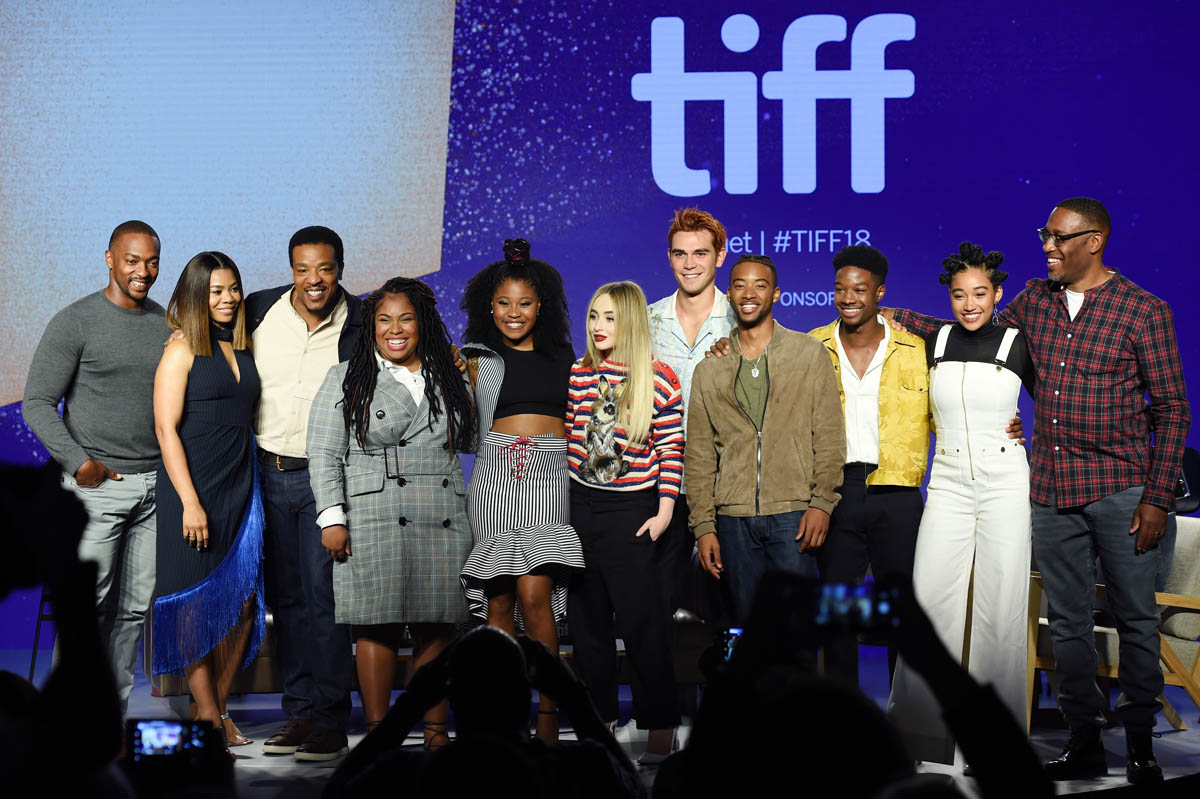
A few years ago, book-to-screen YA adaptations meant sci-fi worlds of vampires or dystopian futures. Their heroines were named Bella or Katniss or Tris and even though their stories were unique in their own ways, a few things were constant. Love was as integral to these teen girls as forces bigger than their control. The stakes were life or death. These teen girls were white.
Last year, we met Starr Carter in Angie Thomas’s The Hate U Give and she wasn’t battling vampires or living in a post-apocalyptic future but the stakes were just as high. Love was just as vital. She was a hero who didn’t look like her predecessors and she didn’t need to be transported to the future to understand tragedy. For a generation of teen girls who have no choice but to be politically-minded, who live with the constant threat of violence depending on the colour of their skin, Starr Carter is the heroine they’ve been waiting for. She’s ushering a new era of YA adaptations set in the real world with characters who are not white or straight but still revolutionary.
The Hate U Give is a film that never forgets it’s about a teenager while still managing to tackle mature subject matter with nuance and grace. At its core, The Hate U Give is about the stories we give to young people. It’s about how they come of age and the worlds they grow up in. The acronym it’s based on (THUG LIFE – The Hate U Give Little Infants F-cks Everybody, coined by Tupac) acts as its thesis. The Hate U Give is about how a black teenage girl finds her voice amidst the hate. It’s a devastating look at how the system of racism and white supremacy in America affects black families and black lives. It’s an intimate look at a black life that mattered before it was taken too soon.
But you knew this. We’ve been yelling at you for a year to read Angie Thomas’s masterpiece and if you’ve done that, you know how powerful the story of Khalil, an unarmed black teen shot by a white police officer, and his best friend Starr is. The incredible thing about the George Tillman Jr. directed film, which premiered at TIFF this weekend, is that it does Angie’s work justice. They really did it. With a spectacular cast who elevates the film with every performance, George Tillman Jr. made a movie that is for this moment, absolutely, but also one that will be a timeless classic. It manages to be a crowd-pleasing, big budget Hollywood drama while also being an uncompromising must-see showcase of family and race relations in America.
THIS CAST. I’ll start with Amandla Stenberg as Starr, the Katniss Everdeen of Garden Heights (kind of a full circle moment since a young Amandla was in Hunger Games.) If Starr is the hero we’ve been waiting for, this is the role Amandla has been waiting for. As much as I like Amandla as an actress and outspoken activist, I wondered if she’d have the range to pull off Starr, the girl who has to exist in two worlds and lives most of her rage in her head, afraid to show too much of herself to either world. She delivered. Good lord, did she deliver.
The movie’s script, penned by Audrey Wells, relies on voiceovers to explain Starr’s code-switching – how she navigates from her all-black neighbourhood to her predominately white private school. There are so many things I loved about The Hate U Give but what I related to most was Starr’s descriptions of her white school and how her friends could use black slang to sound “cool” while she avoided it so as not to give them “any reason to call [her] ghetto.” These scenes in her high school are the ones that left me winded by recognition. I also loved how seriously they took Starr’s high-school friendship drama because it IS serious, especially when race is involved. I knew so many Haileys (played by Sabrina Carpenter) growing up attending a school just like Starr’s. I let these Haileys rob me of myself for too long, so scared of what cutting thing they’d say next or what stereotype they’d take me for. This is the life of a black woman in white spaces, the constant second-guessing of every action, the loneliness and isolation. It’s a hard thing to explain – it’s even harder to get from page to screen. But they did it. I am so grateful for every teen girl who will see herself in Starr that they did.
Amandla’s performance is a breakthrough – she’s utterly devastating. Starr holds her anger in her eyes, sometimes letting it spill out in tears but knowing she can’t show her emotions because like everything else a black woman does, they will be policed. In the lighter moments, when she’s flirting with Khalil (Algee Smith is the PERFECT Khalil) or being playful with Chris (KJ Apa), Amandla’s eyes still wreck you with joy or love or happiness. Those moments make it all the more gutting when that light in her eyes dims. The skill Amandla displays in this film is exhilarating.
The most stunning performance in The Hate U Give comes from Russell Hornsby as Maverick, Starr’s dad. The Hate U Give is an exceptional movie but it probably won’t be an awards contender, even though Russell Hornsby’s performance should be. During the premiere screening at TIFF, the audience applauded mid-scene after one of Maverick’s big monologues. Russell Hornsby is THAT GOOD. He brings sensitivity, vulnerability, and strength to Maverick, a man fighting to protect his family. One of the ways he does this is to give them The Talk. This is the conversation every black father has with his kids about what to do when they are stopped by police. I remember my dad giving us The Talk like it was yesterday. It’s the first scene of the film and it’s a heart-wrenching foreshadow of what’s to come. Regina Hall plays Lisa, Starr’s mom, excellently opposite Russell Hornsby. She’s not given a lot to do but with what she’s got, she gives the most. She’s also there for many of the Carter family’s funny moments that give a much-needed comedic reprieve. We don’t deserve Reginal Hall.
Common and Issa Rae appear for the least amount of screen time but for crucial scenes. Common, as a black cop (Starr’s uncle) who has one of the most pivotal conversations in the movie about police violence and Issa, as a lawyer and activist (April Ofrah) who pushes Starr to use her voice. They’re both great. The cast is GREAT – even KJ Apa, who I was worried about since he took over this role last minute, holds his own. He’s in one of my favourite scenes of the movie where he, in a classic White Guy move, tries to explain that he “doesn’t see colour.” Starr responds with one of the best lines ever: “If you don’t see my blackness, you don’t see me.”
THAT PART.
We’re going to keep talking about this film leading up to its release so I’m not going to venture too far into spoiler territory but I want to go back to a quote Lainey mentioned last April that Angie Thomas said of The Hate U Give.
“… a lot of white readers have told me my book opened their eyes and helped them understand Black Lives Matter, and black readers told me, ‘I see myself in these pages.’ It’s like my book gave white readers a window and it gave black readers a mirror.”
A window and a mirror. For me, so many parts of Starr’s story are a mirror. I saw myself so clearly that sometimes the emotions were too much. I left the theatre shaking with rage at the injustice of police violence still happening today that so many people refuse to understand but also simmering with a dull ache from the hopelessness – knowing the hate the world is continuing to give young people. I saw The Hate U Give with my partner, a straight white man. For him, it was a window. White people who see this movie will hear out loud some of the asinine things people who look like them still say in the wake of a police shooting, in the context of how ridiculous they sound juxtaposed with a grieving black family.
I think some of the criticism of The Hate U Give will come from how commercial it feels or how palatable some of the protest scenes are. To me, those scenes still weren’t easy to watch but in this case, I think being relatively commercial and palatable are okay. In sometimes taking the safer—yet no less uncomfortable—approach, The Hate U Give is going to appeal to a larger audience, and hopefully reach some of those privileged people who continue to ignore the real-life Khalils. Isn’t that the point? It’s going to hold up a window to the masses. It may be disguised as a straightforward Hollywood YA adaptation and while it is that, The Hate U Give is so much more.

